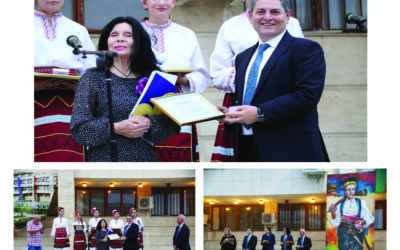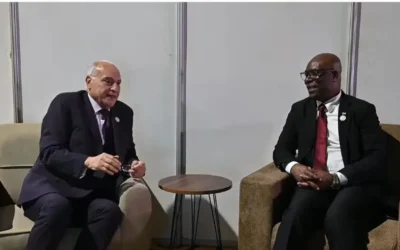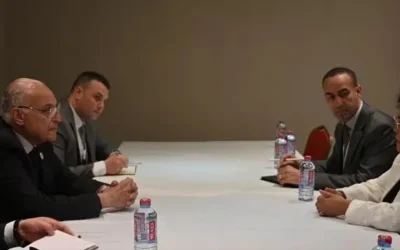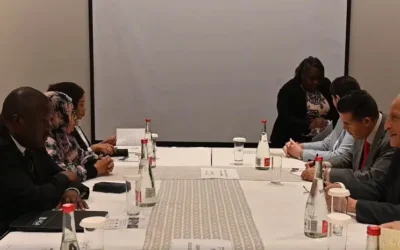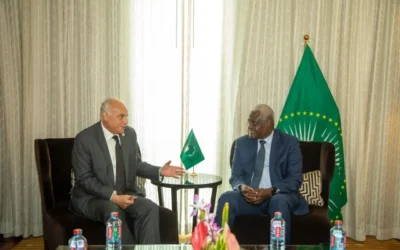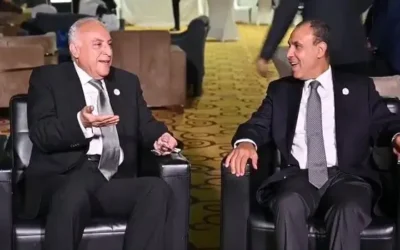OBG: President Bouteflika has brought “great stability” to Algeria

APS :Sunday, 31 January 2016
LONDON-President of the Republic Abdelaziz Bouteflika has brought “great stability” to Algeria and “a return to normalcy” for the country since his election the first time in 1999, the Oxford Business Group (OBG) stated in its annual report.
Bouteflika’s election in 1999 has brought ” greater stability and a return to normalcy for the country”, which allowed social peace and economic recovery for all its mandates, the OBG 2015 report on Algeria said.
After 10 years of “turbulences” marked by terrorist acts, the last 15 years have been a period of “relative peace and stability” in Algeria. The country was “little affected by the Arab Spring 2011, thanks to the good governance of President Bouteflika “.
President Bouteflika’s management unveiled “a number of strategic priorities, with broad initiatives that strengthened sustainable development, including job creation, public works projects, natural resource management and budgeting while oil prices are at their lowest level,” the report added.
Among the “positive” measures taken by Algeria, the report cites the early repayment of foreign debt, considered “a blessing” by the Group, and “the consolidation of the rule of law” and reforms “in all sectors.”
The document of almost 250 pages also mentions the revision of the Constitution “being finalized”, and “efforts to fight against corruption.”
It also noted that “thanks to the wise management of President Bouteflika, Algeria has avoided a popular uprising and improved living standards for the majority of the country’s population,” thanks to the “significant reserves” of oil that helped support housing needs, care, education, credit facilities and grants for broad consumption products.
Besides, OBG evokes the changes proposed in the draft of the new constitution, including “the limitation of presidential terms, the expansion of investigations into political corruption, granting the prime minister greater responsibilities and improving freedom of the press, religion and the right to assembly and peaceful protest.”
The report also highlights that some opposition parties have rejected the content of the draft constitution and pleaded for “further transparency in management and more democracy.”
In this connection, it stressed that it was “unlikely that this opposition is a threat to power,” noting that a party like the Movement of Society for Peace (MSP), part of the opposition had been in government until 2012, and that other voices “have no credibility with the electorate.”
However, this opposition “is unlikely to pose a significant threat to the government. Given that the MSP was in government with the National Liberation Front (Front de Liberation Nationale, FLN) until 2012, the CLTD has limited credibility amongst the electorate and has not addressed the issues that most resonate with voters.”
In 2014, President Bouteflika was elected for a fourth five-year term with 81% of the vote, an indication that the country is on a more stable footing,” OBG added, reporting “sharp contrast” with other neighboring countries such as Tunisia and Egypt.
Regionally, the report said that “Algeria has also been pushing diplomatic efforts to bring greater security to its neighbours by encouraging a move to reach power sharing and peace deals in both Libya and Mali.”
Finally, OBG hailed Algeria’s foreign policy, which has “enabled the country to extend diplomatic relations to strengthen and deepen trade ties” and “benefit from closer relations with major powers such as United States and the European Union “.
Categories
Recent Posts
- Ambassador MEHILA Messaoud, presents Mrs. Lyubka ALEXANDROVA with a selection of photographs
- The Embassy of Algeria in Sofia awarded for its Cultural Activities
- Mr Attaf, Equatoguinean counterpart hold talks
- Mr Attaf holds talks with CEO of AUDA-NEPAD
- The Minister Attaf, President of PAP holds talks

